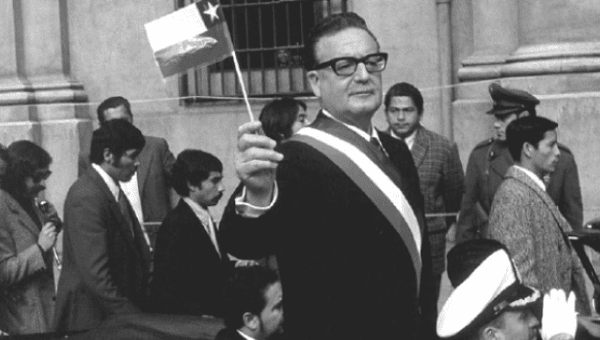
Gabriel Garcia Marquez, the Nobel prize winning writer, wrote a classic essay Why Allende Had to Die in New Statesman in 1974 on the coup in Chile in 1973 in which socialist President Salvador Allende was killed. He gives details of U.S. involvement in the coup and a lot of subsequent research reaches that conclusion.
The United States, now facing the Corona virus crisis in a more serious manner than other nations, should regret that involvement because its policies have also killed the social medicine , public health model that Allende stood for. The large number of deaths of poor Latinos and blacks in the U.S. in the current epidemic show that. If the U.S. had learnt any lesson from that model it would have prevented a lot of deaths .
Dr Howard Waitzkin and others point in the American Journal of Public Health that in his classic book Chilean medico social reality, Allende described the “living conditions of the working classes” that generated illness. He emphasized the social conditions of underdevelopment and international dependency, as well as the effects of foreign debt and the work process. In this book, Allende focused on several specific health problems including communicable diseases, emotional disturbances, and occupational illnesses. Describing issues that had not been studied previously, he analyzed housing density in the causation of infectious diseases, and differences between generic and brand-name pricing in the pharmaceutical industry.
. Allende proposed income redistribution, state regulation of food and clothing supplies, a national housing program, and industrial reforms to address occupational health problems. Rather than seeing improved health care services as a means toward a more productive labor force, Allende valued the population’s health as an end in itself and advocated social changes that went far beyond the medical realm.
We need to remember Dr Allende today because his work is crucial for public health in all countries, especially in countries like India.
Allende’s analytic position in social medicine lay behind much of his political work until his death in 1973 during the military coup d’état. In addition to the work of Virchow and Westenhofer in pathology, the Civil War in Spain influenced Allende, as it did many later practitioners of social medicine in Latin America. The struggle against fascism and for a more egalitarian society in Spain during the late 1930s led to a movement for improved public health among activists in the exiled Spanish Republican community. Allende and his supporters incorporated principles from the Spanish public health movement into their efforts for change in Chile, experts point out.
As an elected senator in the early 1950s, Allende introduced the legislation that created the Chilean national health service, the first national program in the Americas that guaranteed universal access to services. He linked this reform to other efforts that aimed to achieve more equitable income distribution, job security, improved housing and nutrition, and a less dominant role for multinational corporations within Chile. Similarly, as a senator during the 1960s and elected president between 1970 and 1973, Allende sought reforms in the national health service and other institutions that would have achieved structural changes throughout society. . Another line of work in social medicine that grew from Latin America was that of Ernesto (“Che”) Guevara. Guevara’s childhood asthma, as well as role models in his family, led him to enter medical school and eventually to specialize in allergic diseases. After medical school, he toured South America, Central America, and Mexico by motorcycle. Through experiences of poverty and suffering during this trip, he developed his views about the need for revolution as a prerequisite for improving health conditions.
Che Guevara called for a corps of physicians and other health workers who understood the social origins of illness and the need for social change to improve health conditions. Guevara’s work profoundly influenced Latin American social medicine. One might expect that Guevara’s views developed partly from knowledge about Allende, Justo, and others who preceded him, but apparently this was not the case. Sources close to Guevara, including an uncle who served as a role model in medicine, claimed that throughout his medical training and career Guevara remained unexposed to earlier works in Latin American social medicine and that he developed his analysis linking health outcomes with social conditions largely through experiences during his motorcycle trip, the health journal noted..
Vidyadhar Date is a senior journalist and author of a book on democratising transport
SIGN UP FOR COUNTERCURRENTS DAILY NEWS LETTER









































